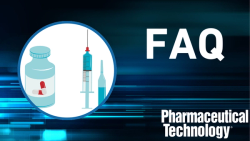
OR WAIT null SECS
- About Us
- Advertise
- Contact Us
- Editorial Info
- Editorial Advisory Board
- Do Not Sell My Personal Information
- Privacy Policy
- Terms and Conditions
© 2026 MJH Life Sciences™ , Pharmaceutical Technology - Pharma News and Development Insights. All rights reserved.
UK Supreme Court Grants Permission to UK BioIndustry Association to Intervene in Case
Permission from the United Kingdom's Supreme Court has been granted to the UK BioIndustry Association, allowing it to intervene in a dosage regimen patent case.
The United Kingdom’s Supreme Court has granted permission to the UK BioIndustry Association (BIA) to intervene in a court case addressing the patentability of discovery made during the dosage regime stage of a clinical trial, it was revealed in a Nov. 5, 2018 press release.
The case in question is that of Actavis versus ICOS, the outcome of which may have implications for the life-sciences sector as a whole. Originally, a few manufacturers, including Actavis, began proceedings to revoke a patent held by ICOS relating to the dosage regimen of tadalafil. This High Court case resulted in a ruling by Birss J. that the patent was valid and as such attempts to revoke it was an infringement.
This was taken to the Court of Appeal where the decision was overturned as a result of the dosage regimen being deemed as ‘obvious to try’. However, ICOS is now challenging the Court of Appeal’s decision.
In its application to the Supreme Court, the BIA highlighted that the design and conduct of clinical trials, as well as other forms of biomedical research, involves significant skill and complex decision-making even though it may be simply following a step-wise well-established methodology. Therefore, the BIA believes that a decision of obviousness needs to be based on knowledge at the time and not just on the nature and type of research and has urged the Supreme Court to not make a decision in this case that may have implications on other patents for inventions in the pre-clinical or clinical development stage.
“Clinical trials are an important part of medical innovation, and it is vital that companies can protect their discoveries regardless of what stage in the research process they are made,” commented Steve Bates, CEO of the BIA in a press release. “Without a strong and consistent patents regime that rewards innovation, UK bioscience companies will not be able to attract the investment they need to develop the life-saving drugs of tomorrow. We are delighted that the Supreme Court will give consideration to the arguments we are making on behalf of the UK bioscience sector.”
Fieldfisher LLP, together with other members of the BIA’s Intellectual Property Advisory Committee, prepared the BIA’s application to the Supreme Court.
Source: BIA
Related Content:



